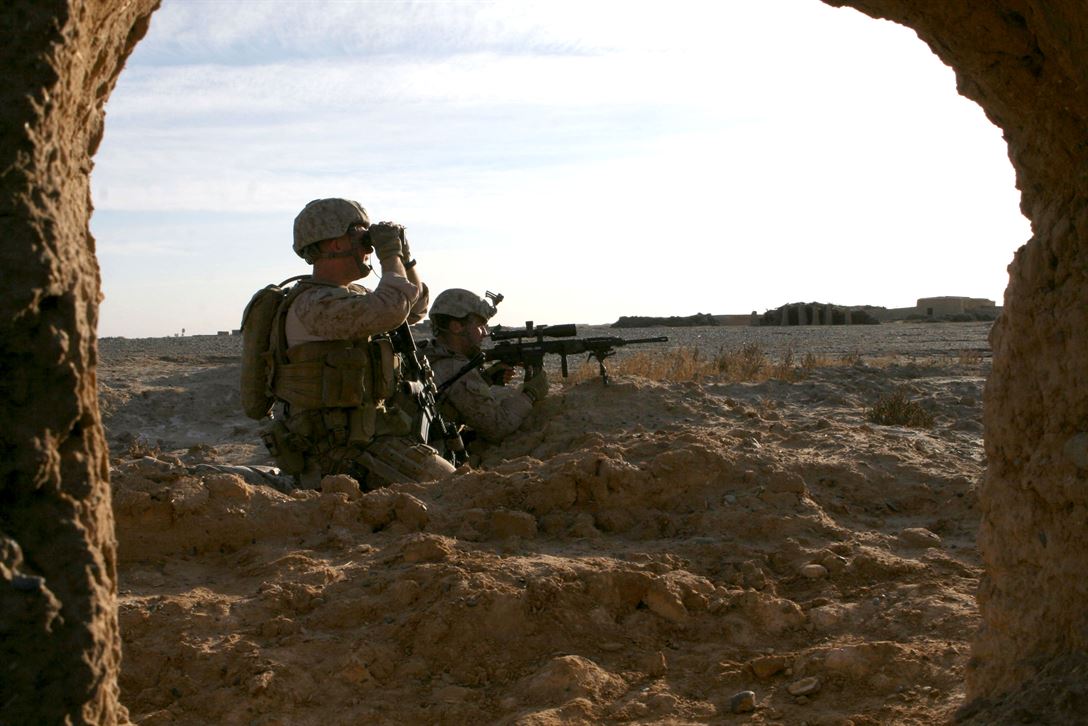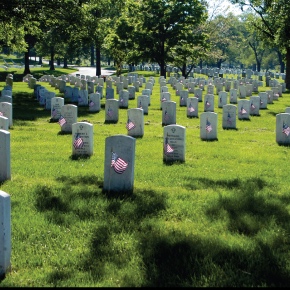
Marines take aim at insurgents during a firefight in Afghanistan’s Helmand province, Jan. 18, 2010. DoD Photo
If you had a choice, after all these years, would you go back? Absolutely. In a heartbeat. This is something I hear from veterans I work with all the time: if they called, I would go back in an instant. This may come as a surprise to those who have never served, and I certainly don’t mean to say that all veterans feel this way. But for many combat veterans, there is an often conflicting desire: to remain home with their loved ones or to go back to war. This has elements of the fact that it was often the best time and the worst time in our lives. And it also has to do with the back there paradox that some veterans need to resolve.
This isn’t something that is just reserved for current veterans, either. I have an uncle who was a Vietnam Veteran, and when I deployed to Iraq, he said, “Take me with you, kid! I can get some as well now as I could then!” Forty years after he had been in combat, he wanted to go back. In some ways, almost needed to go back.
But why is it like this? If we really hate war, why would we do it again? It’s certainly not for the glory, because there isn’t a lot of that. It’s not for the money, either, because nobody gets rich in the Army. There reasons that a service member may want to return to combat are more personal, and other-focused. It doesn’t mean we don’t love our families, it doesn’t mean we have a death wish; it has to do with the values that we developed when we were in the service. Here are some of the reasons that a veteran may want to go back to war:
A Place of Skill and Familiarity
For a service member, a deployment is the end-all and be-all of the reason we joined in the first place. Maybe you said you joined to earn money for college…that’s certainly the reason I gave myself…but it very quickly developed into a love for the military, the camaraderie, the enjoyment of it. It goes to the paradox where we hate war, but love combat. Deployments, and especially combat deployments, were a place where we knew how to use the skills we had developed. What we did was significant, meaningful work. Life could be very simple while deployed; get up, do your job, get back to base, and hit the gym/mwr/chow hall, whatever your routine was. Sure, it got boring and repetitive, but we knew how to do stuff and we knew where things were. It was familiar.
To Preserve the Meaning of Sacrifice
Another reason I hear for wanting to go back is simply the sense of unfinished business. I was with a group of Marines when we were watching news coverage of the fall of Fallujah in 2014. There was significant anger; one of them turned to me, and said, “Why the @#$% did we go through all of that, then?” The fact is that many veterans who returned home feel as though the true heroes were the ones that didn’t return. There is a personal desire to ensure that they did not give their lives in vain; to ensure that there sacrifice still has meaning. Of course, it has meaning to us personally, and if we tell ourselves that it no longer has meaning, then it doesn’t to us. We have control over the meaning that we give to things. This may not be a particularly rational or practical reason, but it’s still a very powerful reason nonetheless.
Our Brothers and Sisters
These first two meanings are very personal, although they are tied to the next two. These reasons, however, have much more to do with others. It’s been said often in many places: the reason the grunt on the ground fights is not for the country, or the political reasons, but for the people to their left and their right, in front and behind. Because of their fellow service members. The memories of our brothers and sisters are usually the heaviest and most long-lasting: I made it back. They didn’t. I made it back because they saved my life. We were a team, had a bond, did something important together. Many veterans would go back to combat if their brothers and sisters they served with called and said, “hey, we need you.” Many would be there. In a heartbeat.
So That Others Don’t Have To
This is a reason for wanting to return to combat that exists on a much more theoretical scale. We sacrifice so that others don’t have to. This was always a driving force for me; I served in order to provide a life for my children in which they did not have to. Of course, it’s challenging when the ones who we sacrificed for don’t recognize that sacrifice; the recent incident in which a teenager vandalized a memorial honoring Medal of Honor recipient Michael Murphy brings the lack of awareness of and appreciation for that sacrifice into focus. Still, the one who serves doesn’t always do it with the expectation that the beneficiaries of that service will appreciate it; they will continue to do so. It’s ingrained in many service members; we carry the heavy load so that others don’t have to, knowing that they would do the same for us. We go the extra mile, because we know that we won’t be walking alone.
It can be challenging for many of us when we consider whether or not we would go back. It’s not just nostalgia, the desire to return to the days of our youth; our reasons for wanting to return are based on our values and beliefs. And, again, it doesn’t mean we have a death wish or don’t care for our families; it means that the words honor, duty, and sacrifice are more than just words to us, and those words don’t lose their meaning when we leave the military.
 The Head Space and Timing Blog is supported by the Colorado Veterans Health and Wellness Agency, a 501(c)3 Nonprofit in Colorado Springs, Colorado. The goal of the CVHWA is to provide military culturally competent mental health counseling to veterans and their spouses, regardless of characterization of discharge, time of service, or era of service. Our vision is to assist veterans to identify and remove barriers to their mental, physical, emotional, and behavioral wellness. For questions or inquiries, contact us!
The Head Space and Timing Blog is supported by the Colorado Veterans Health and Wellness Agency, a 501(c)3 Nonprofit in Colorado Springs, Colorado. The goal of the CVHWA is to provide military culturally competent mental health counseling to veterans and their spouses, regardless of characterization of discharge, time of service, or era of service. Our vision is to assist veterans to identify and remove barriers to their mental, physical, emotional, and behavioral wellness. For questions or inquiries, contact us!


